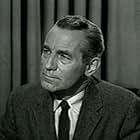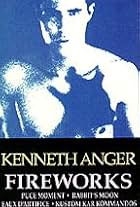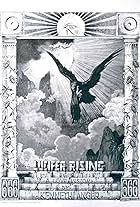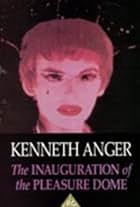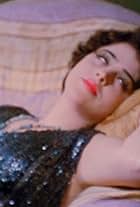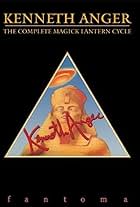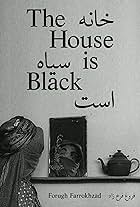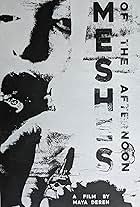Scorpio Rising
- 1963
- 28m
IMDb RATING
6.8/10
5.8K
YOUR RATING
A gang of Nazi bikers prepares for a race as sexual, sadistic, and occult images are cut together.A gang of Nazi bikers prepares for a race as sexual, sadistic, and occult images are cut together.A gang of Nazi bikers prepares for a race as sexual, sadistic, and occult images are cut together.
- Awards
- 1 win
Ernie Allo
- Joker
- (uncredited)
Bruce Byron
- Scorpio
- (uncredited)
Frank Carifi
- Leo
- (uncredited)
Steve Crandell
- Blondie
- (uncredited)
Johnny Dodds
- Kid
- (uncredited)
Bill Dorfman
- Back
- (uncredited)
Nelson Leigh
- Jesus Christ
- (archive footage)
- (uncredited)
John Palone
- Pinstripe
- (uncredited)
Barry Rubin
- Fall Guy
- (uncredited)
Johnny Sapienza
- Taurus
- (uncredited)
- Director
- Writers
- All cast & crew
- Production, box office & more at IMDbPro
Storyline
Did you know
- TriviaBruce Byron worked as a motorcycle messenger in Manhattan. His zodiac sign was Scorpio, and so he called himself that, as well as carrying at all times the scorpion amulet which he is seen kissing and holding in the film. The honorable discharge certificate from the United States Marine Corps, on the wall above his bed, was his own, as were all the pictures of James Dean and Marlon Brando, of whom he was a big fan. He is seen reading the Sunday comics section from a newspaper, which really was his favorite thing to read. The newspaper clipping near his bed, with the headline "CYCLE HITS HOLE & KILLS TWO," was about an accident in Times Square that had killed one of his friends. Another friend, who worked in a medical-products factory in New Jersey, had supplied him with the pure methamphetamine powder which he snorts from his fingers during the "Heat Wave" sequence.
- ConnectionsFeatured in Arena: Hollywood Babylon (1991)
Featured review
I know I'm not the first person to point this out, but I'm fairly certain without this uncanny, sort of experimental short film (I say 'sort of' since it's experimental mostly in it having a lack of a clear story and definable characters, but more on that just a moment), we wouldn't have Martin Scorsese. It may seem obvious to some, but it's confirmed when reading the book of interviews he did with Richard Schickel several years ago, when he recalled seeing the film when it was first released - in an underground format, as it was that kind of picture, on someone's rooftop or in a basement or other - and that it really made an impact that he couldn't articulate.
Seeing this today it's somewhat easy to see why: the rock and roll music, the emphasis on montage that cuts in flow and sync with the image, and how the image of a man is based on how he looks (we see in Mean Streets and Taxi Driver how a man looks will define him, both in clothes and in style, i.e. Travis Bickle or, on the comedic side, the awkardness of Pupkin). There may have been some influence on Lynch too, if only through the 'Blue Velvet' song, though somehow, someway, I think Anger comes away with using the song in a more iconic way: a soothing tale of a woman putting on and being beautiful in a dress juxtaposed with a man putting on his jeans and jacket and being in front of the camera like 'yeah, what?' It's probably in a mocking tone that Kenneth Anger shows his figures in biker garb, and yet it's hard to tell exactly what the intention is. This is not a bad thing; the way it's presented different people will take away different aspects. If it is satirizing the culture of rebellion it's that it's like, 'well, this guy thinks he's tough and manly and yet wait until that erect genitalia comes out' (and if you look close enough it's not hard to miss, no pun intended).
The majority of this film is really about its style, if that makes sense. The first 16/17 minutes is simply seeing set up. We don't know what for since there are no characters and there's no dialog: the soundtrack is made up of songs (really great ones by Elvis and Ray Charles and Martha and the Vandellas and the Crystals and so on) and sometimes the sound of motorcycles revving up. So it's all about ritual - how to put together the bicycle, how a little kid (who is only there briefly) plays with his toys, and how the men put on their jackets and rings and stand in front of the camera like any moment they might just start masturbating to their own image. As if by some happenstance as well (according to Anger this was a coincidence by some miracle) The Wild One is on TV, which lends this to being akin to Godard's Breathless as far as figures trying to attain their ideal images.
Only this isn't Brando; these bikers are, I think gay Nazis(?) It's hard to tell exactly, but then the substance in this case *is* the style. I'm still pondering over what the religious symbolism means as well, as Anger cuts in shots from some other black and white film showing Jesus (I think it's him, he had the beard and all). Is this meant to be mocking as well, as if to say 'well, you think YOU got a crew?' This was lost on me as I was watching it, but it's fine to think about it later on too.
The whole experience of Scorpio Rising is just one of total fascination. There's nothing as far as there being a concrete story - maybe there is one and I just missed it - but as far as simply showing us things, it's an excellent example of how to marry image and music. Without the songs this wouldn't really be all that much, just a lot of well-shot but randomly and at times very wildly cut together images of male perversity and hedonism (and sometimes just showing us shots of bikers riding around is simple). But you get the sense that in a weird way this is almost like a documentary of how men who go into the world of dangerous rebellion see themselves, and to go one further how if you do happen to be a gay nazi motorcycle man who gets in leather and rides around and does things with other men... well, do these guys even exist? Probably, or probably not.
For Kenneth Anger there's some satire to mine in the ritual of getting ready, the image of over-hyper-WTF-masculinity, and how far the world of Marlon Brando and his "What are you rebelling against" "Whaddaya got?" can go. It's sophisticated and daring and campy and deranged, and it feels still fresh today in its craft that it almost doesn't feel like it's from 1964, rather that it's from the 1990's and it's looking back at that period - it's post-modern to the core.
Seeing this today it's somewhat easy to see why: the rock and roll music, the emphasis on montage that cuts in flow and sync with the image, and how the image of a man is based on how he looks (we see in Mean Streets and Taxi Driver how a man looks will define him, both in clothes and in style, i.e. Travis Bickle or, on the comedic side, the awkardness of Pupkin). There may have been some influence on Lynch too, if only through the 'Blue Velvet' song, though somehow, someway, I think Anger comes away with using the song in a more iconic way: a soothing tale of a woman putting on and being beautiful in a dress juxtaposed with a man putting on his jeans and jacket and being in front of the camera like 'yeah, what?' It's probably in a mocking tone that Kenneth Anger shows his figures in biker garb, and yet it's hard to tell exactly what the intention is. This is not a bad thing; the way it's presented different people will take away different aspects. If it is satirizing the culture of rebellion it's that it's like, 'well, this guy thinks he's tough and manly and yet wait until that erect genitalia comes out' (and if you look close enough it's not hard to miss, no pun intended).
The majority of this film is really about its style, if that makes sense. The first 16/17 minutes is simply seeing set up. We don't know what for since there are no characters and there's no dialog: the soundtrack is made up of songs (really great ones by Elvis and Ray Charles and Martha and the Vandellas and the Crystals and so on) and sometimes the sound of motorcycles revving up. So it's all about ritual - how to put together the bicycle, how a little kid (who is only there briefly) plays with his toys, and how the men put on their jackets and rings and stand in front of the camera like any moment they might just start masturbating to their own image. As if by some happenstance as well (according to Anger this was a coincidence by some miracle) The Wild One is on TV, which lends this to being akin to Godard's Breathless as far as figures trying to attain their ideal images.
Only this isn't Brando; these bikers are, I think gay Nazis(?) It's hard to tell exactly, but then the substance in this case *is* the style. I'm still pondering over what the religious symbolism means as well, as Anger cuts in shots from some other black and white film showing Jesus (I think it's him, he had the beard and all). Is this meant to be mocking as well, as if to say 'well, you think YOU got a crew?' This was lost on me as I was watching it, but it's fine to think about it later on too.
The whole experience of Scorpio Rising is just one of total fascination. There's nothing as far as there being a concrete story - maybe there is one and I just missed it - but as far as simply showing us things, it's an excellent example of how to marry image and music. Without the songs this wouldn't really be all that much, just a lot of well-shot but randomly and at times very wildly cut together images of male perversity and hedonism (and sometimes just showing us shots of bikers riding around is simple). But you get the sense that in a weird way this is almost like a documentary of how men who go into the world of dangerous rebellion see themselves, and to go one further how if you do happen to be a gay nazi motorcycle man who gets in leather and rides around and does things with other men... well, do these guys even exist? Probably, or probably not.
For Kenneth Anger there's some satire to mine in the ritual of getting ready, the image of over-hyper-WTF-masculinity, and how far the world of Marlon Brando and his "What are you rebelling against" "Whaddaya got?" can go. It's sophisticated and daring and campy and deranged, and it feels still fresh today in its craft that it almost doesn't feel like it's from 1964, rather that it's from the 1990's and it's looking back at that period - it's post-modern to the core.
- Quinoa1984
- May 9, 2016
- Permalink
Details
Box office
- Budget
- $16,000 (estimated)
Contribute to this page
Suggest an edit or add missing content










